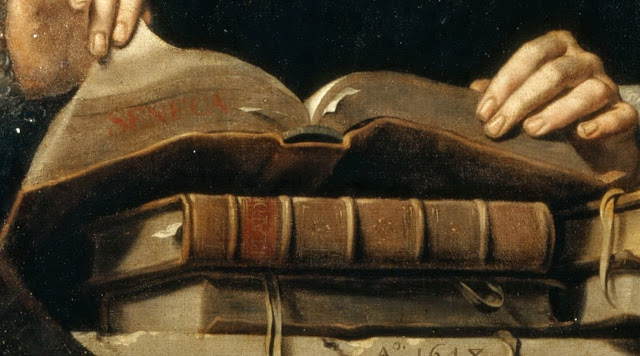First, some of his verses had already begun to circulate without Octavius's consent. Accidental and unwanted publication of an author's unfinished writings often occurred in antiquity. In response, Pliny urged Octavius to quickly publish his completed writing so that those pre-circulating verses could then be claimed as his own.
Second, Pliny believed that completing and publishing a written piece would be a lasting monument to the author's fame. The work would far outlive the author's life and ensure their memory lived on in those who read the book.
"What an indolent fellow you are, or perhaps I should say how hard-hearted you are and almost cruel to keep back so long such splendid volumes of verse! How long will you deprive yourself of the chorus of praise that awaits you, and us of the pleasure of reading them? Do let them be borne on the lips of men and circulate through all the wide regions where the Roman tongue is spoken. People have long been eagerly looking forward to your publishing them, and you really ought not to cheat and disappoint them any longer. Some of your verses have become known, and - no thanks to you - have broken down the barriers you set round them, and unless you rescue them and include them in the main body of your work they will one day, like vagrant slaves, find someone else to claim the ownership of them. Don't lose sight of the fact that you are but mortal, and that you can only defend yourself from being forgotten by such a monument as this: all other titles to fame are fragile and perishable, and come to a sudden end as soon as the breath is out of your body. . . . However, as to publishing, do as you please, but at least give some public readings, in order to stir you on to publishing, and that you may at length see how pleased people will be to hear you, as I have for a long time been bold enough to anticipate on your account. For I picture to myself what a run there will be to hear you, how they will admire your work, what applause is in store for you, and what a hush of attention." (Ep. 2.10)
I find it fascinating that in the same letter (Ep. 2.10) Pliny both admits to the volatility of ancient publication (in that someone may plagiarize Octavius's work) and proclaims that a published writing would be akin to a great monument for the author, far outliving them and ensuring the author's memory lived on into the future.
This idea of a written piece being a part of the author's lasting fame Pliny expounded upon previously. In an earlier letter to his friend Caninius Rufus, he urged him to drop everything and get to writing.
"But really it is time that you passed on your unimportant and petty duties for others to look after and buried yourself among your books in that secluded yet beautiful retreat. Make this at once the business and the leisure of your life, your occupation and your rest; let your waking hours be spent among your books, and your hours of sleep as well. Mould something, hammer out something that shall be known as yours for all time. Your other property will find a succession of heirs when you are gone; what I speak of will continue yours for ever - if once it begins to be. I know the capacity and inventive wit that I am spurring on. You have only to think of yourself as the able man others will think you when you have realised your ability. Farewell." (Ep. 1.3)
It is obvious that Pliny was fully aware of the potential for copyist errors and plagiarism, with regard to ancient publication practices. Nevertheless, Pliny fully expected that a book would continue to be considered the author's own work and live on into posterity. This is because Pliny himself was intimately familiar with written works that had been penned hundreds of years before his time.
It is good to remember this ancient understanding and tension between the problems inherent in ancient publication and the glory and fame a written work could give the author long into the future. Especially when we approach the practice of textual criticism of the New Testament. Even though it may be difficult for modern textual critics to discern between later textual changes and the author's intended words. The response should not be to then assume that there was no completed (whether intentional or otherwise) version of the text that the author intended. This is one of the concluding arguments that I make at the end of one of my published articles,
"Though the modern textual critic may have difficulty discerning between the authorial text and later additions and corruptions made to the text after the document began to circulate, this does not mean that the ancients did not make these distinctions or that the modern textual critic should not" (Mitchell, "Exposing Textual Corruption," pg. 290)
_______________________
English translation of Pliny's Letters are by J.B. Firth, http://www.attalus.org/info/pliny.html
See also my comments on page 298 of,



Excellent!
ReplyDeleteThank you! I kept thinking about the issue of preservation and inspiration. Though the the transmission of the scriptures is imperfect, it does not diminish the glory of it's author.
Delete